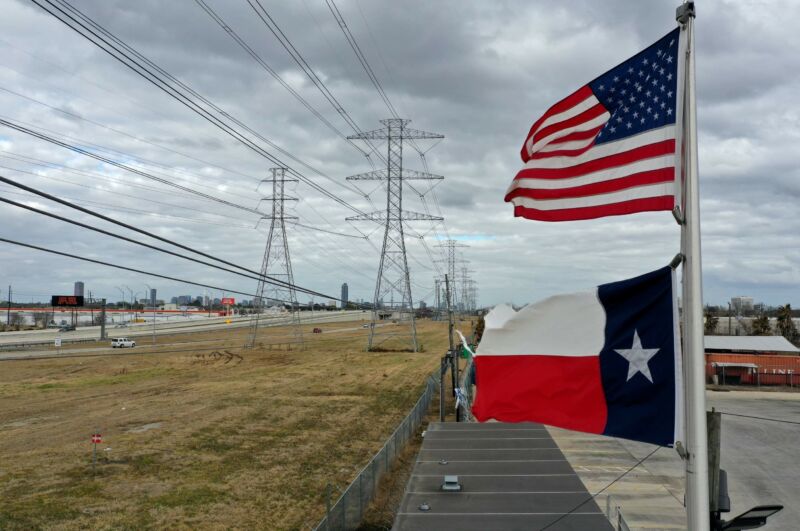Sam Levin in Los Angeles
Thu, February 25, 2021

Photograph: Tom Brenner/Reuters
The US House of Representatives voted to pass a landmark bill that would establish federal anti-discrimination protections for LGBTQ+ people, setting up a tough battle in the Senate to turn the proposal into law.
“We shouldn’t still be having to fight for equal rights,” said Nic Talbott, a 27-year-old Ohio resident, who was forced to abandon his plans of joining the military due to Donald Trump’s ban on trans service members. “We should be able to go to work, find housing and just live our lives without having to worry about whether or not we’re going to be excluded just for being transgender or gay.”
The Equality Act passed the Democratic-led House in a 224-206 vote, with three Republicans joining the Democrats. The bill amends existing civil rights laws to explicitly prohibit discrimination based on gender identity and sexual orientation and provides clear legal protections for transgender and queer people in employment, housing, education, public accommodations, federally funded programs and other sectors.
Related: Outrage as Marjorie Taylor Greene displays transphobic sign in Congress
But the proposal’s future is uncertain. Joe Biden has said signing the bill into law is one of his top priorities, but it first has to clear the Senate, where GOP lawmakers could block the legislation with a filibuster.
The Equality Act builds on the landmark US supreme court ruling last year prohibiting employment discrimination against LGBTQ+ workers. Biden has already issued executive orders to defend trans rights, undoing some of Trump’s anti-LGBTQ+ policies and directing federal departments to follow the guidance of the supreme court decision. But advocates say the Equality Act is vital because it would enshrine protections into law beyond employment, and prevent future administrations from rolling back anti-discrimination rules.
The act would be particularly significant for LGBTQ+ residents in the 27 states that do not have anti-discrimination laws on the books for trans and queer people, where it is legal to deny them housing based on their identities.
“Legislation like this is crucial for shifting the tides for trans folks, especially in red states,” said Aria Sa’id, the executive director of the Compton’s Transgender Cultural District, a community group in San Francisco. Trans people flee to California from other states where they have fewer rights or access to services, she said: “We’re coming from other places in the US where we are not safe. We come to San Francisco for refuge … We should be protected in the law no matter where we live.”
The Equality Act fight comes amid unprecedented attacks on trans rights in the US and overseas. Republican lawmakers in at least 20 states are currently pushing local bills targeting trans people, backed by rightwing groups. Many of the bills seek to block trans-affirming healthcare or ban trans youth and adults from certain spaces, including by prohibiting them from using the correct bathroom or participating in sports teams that match their gender.
Some extremist GOP members of Congress have supported those efforts and have been promoting misinformation and transphobic hate speech this week as the House debated the Equality Act.
David B Cruz, a constitutional law professor at University of California, Los Angeles, said federal protections would, in effect, make it illegal for states to enforce discriminatory rules meant to exclude trans people. The Equality Act would also make it harder for the supreme court, which has become more conservative since last year’s ruling, to carve out trans rights in the next LGBTQ+ discrimination case it reviews, he said.
Legislation like this is crucial for shifting the tides for trans folks, especially in red states
Aria Sa’id
“It would be a monumental achievement,” said Cruz. “It’s not always simple or easy for people to enforce their statutory rights, but even having a federal law that expressly protects those rights on the books, by itself will deter discrimination against LGBTQ+ people.” It would help disrupt “cycles of poverty, due to anti LGBTQ+ prejudice”, he added.
Some Republican legislators are vocally opposing the act by citing concerns about religious freedoms. But Cruz noted that a super-majority of Americans in every state support anti-discrimination laws for LGBTQ+ people, including a majority of Republican voters.
Khloe Rios-Wyatt, the president at Alianza Translatinx, a Latinx trans rights group in Orange county, California, said she faced discrimination for being trans when she was terminated from her first job out of college: “It can be traumatizing. You lose your income and then you’re facing potential homelessness.”
She said she regularly talks to trans people who were denied housing even though they qualified: “You show up in person and they tell you it’s no longer available. It breaks my heart and it has to change.”
Bamby Salcedo, the president of the TransLatin@ Coalition in Los Angeles, noted that 2020 was the deadliest year on record for violence against trans and gender non-conforming people, the majority people of color. While the Equality Act could make a difference for the broader LGBTQ+ community, it would not end discrimination for trans people, she said.
“The reality is that even in California and places that are super progressive, trans people continue to experience discrimination while trying to obtain employment, housing, healthcare and the basic things we need to exist … There is still a lot of work that needs to be done.”
There are at least nine LGBTQ+ members in the House and two in the Senate, and supporters in Congress spoke of their trans and queer family members while championing the bill. Polling released earlier this week confirmed that more Americans than ever before now identify as LGBTQ+.











